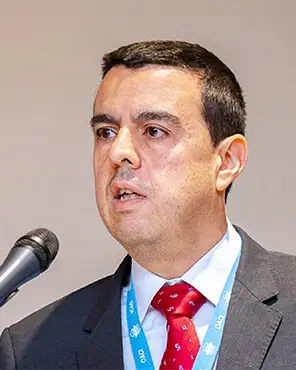Surveillance Panel
Background
Provisions for aeronautical surveillance were previously developed by Aeronautical Surveillance Panel (ASP), which was established in 2006. With the advent of airborne surveillance techniques, in order to deal with significant operational implications, the Airborne Surveillance Task Force (ASTAF) was formed in 2010 as a multidisciplinary group. With the ANC decision to restructure the various Panels, the Surveillance Panel (SP) was established in 2014, merging both the ASP and ASTAF.
Scope
The SP undertakes specific studies and develop technical and operational ICAO provisions for aeronautical surveillance systems, collision avoidance systems and their applications as outlined in the Global Air Navigation Plan.
Objectives
Develop and maintain SARPs and guidance material covering the procedural and technical aspects of airborne and ground based aeronautical surveillance systems, ACAS and related facilities and systems, airborne surveillance capabilities (AIRB, VSA and SURF), advanced airborne surveillance applications (interval management and airborne separation) and ground based safety nets (GBSN). The Panel will also develop provisions for D&A capability in coordination with the RPASP.
Working Arrangements
The ANC has specified the establishment of the Airborne Surveillance Working Group (AIRBWG) for the SP. The panel chairperson may establish additional working groups as necessary, as outlined in Doc 7984. The SP should coordinate their work with the various groups of experts responsible for other Annexes and disciplines, as appropriate.
Required expertise
The panel is composed of experts involved in the design, development, implementation and use of airborne and ground aeronautical surveillance systems, ACAS and related facilities and systems. In addition, some members of the panel have expertise related to ATM, aircraft operation and aerodrome ground control.

IFATCA SP REPRESENTATIVE - IGNACIO BACA (SPAIN)
Mr. Ignacio Baca (Spain) represents IFATCA on the Panel. Mr. Baca has been an ATCO since 2001. He worked in Barcelona ACC before moving in 2006 to Madrid ACC where he obtained his qualification as OJTI. Before his training as a controller he had earned a degree in aeronautical engineering from the Technical University of Madrid and had been involved in projects related to ATM of the 4th and 5th Framework Program of the EU. Ignacio entered IFATCA’s TOC in 2011 and chaired it for two years. He was chosen as IFATCA representative in ICAO SP in 2016 and elected EVPT during the Toronto Conference in 2017. Mr. Baca can be reached at ignacio.baca@ifatca.org.



